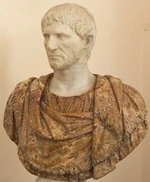Population of Rome (c. 753–716 BCE)
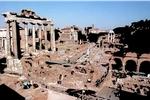
Population of Rome (c. 753–716 BCE)
Early Rome was a small city-state, likely 1,000–5,000 inhabitants at foundation.
This included patrician clans, plebeian residents, and small numbers of slaves or war captives.
Composition of social stratification:
Patricians: 50–100 heads of leading families (forming early Senate).
Plebeians: majority of the population, mostly small farmers, artisans, and laborers.
Slaves/war captives: a minor fraction, usually incorporated after raids or conflicts with nearby settlements.
Population estimates are very approximate, drawn from archaeological surveys of Palatine and surrounding hills and extrapolated from settlement size.
Main Political Characteristics
Founding ruler and first king:
Romulus is both the legendary founder of Rome and its first sovereign authority.
Monarchical system:
Rome was a monarchy, with Romulus holding full executive, military, and religious authority (early imperium).
Centralization of power:
Decisions rested entirely on the king; there were no formal democratic mechanisms at this stage.
Institutions of the Time
Senate:
Composed of 100–300 elders (patres), mostly heads of leading families (gentes).
Role: advisory body to the king, helped organize military campaigns and manage early civic affairs.
Not yet legislative; could not override the king.
Popular Assembly (Curiate Assembly / Comitia Curiata):
Organized by 30 curiae, representing family-based clans.
Role: ratified certain decrees, primarily to formally endorse king’s decisions, grant imperium, and witness adoptions/marriages.
Early form of civic participation, but not a democracy.
Military Organization:
Rome’s army initially consisted of all male citizens organized by clan, led directly by the king.
Military service was both civic duty and a basis of social hierarchy.
Polis Management
Urban foundation and defense:
Romulus established the city on Palatine Hill, organized fortifications, and defined city boundaries.
Division of population:
Patricians (leading families): held political power, formed the Senate, and controlled religious rites.
Plebeians (commoners): initially mostly non-landholding residents; had limited political rights, subject to the king’s decisions.
Conflict resolution:
handled by the king; informal councils and elders advised but did not constrain authority.
Rights and Role of Romulus
King’s imperium: Romulus had absolute power over law, military command, and religious rites.
Legislative role: he issued decrees (leges regiae), later codified by successors.
Judicial role: supreme judge for civil disputes and criminal matters.
Military commander: led Rome in wars and raids; decisions on life, death, and land allocation rested with him.
Main Goods Produced
Local Production
Agriculture (primary economy):
- Grains: wheat, barley
- Legumes: lentils, beans
- Olives and grapes (limited, early viticulture and olive oil)
- Vegetables, fruit, herbs
Livestock:
- cattle
- sheep
- goats
- pigs
Crafts:
- basic pottery
- woven textiles
- simple tools
Trade-Oriented Goods
- Surplus grains (small-scale)
- Livestock or cured meat
- Pottery and simple crafts (locally produced)
Exports
Likely exported to nearby settlements in Latium and Etruria
- Neighboring Latin towns (Alba Longa, Tibur, Praeneste)
- Early Etruscan cities (Veii, Tarquinii)
Nature of export:
- mostly barter or gift-exchange; formal market-based export was limited.
Imports
Raw materials and specialized goods not locally produced:
- Metal: iron, bronze (from Etruria or Greek colonies)
- Luxury items: Greek pottery, ornaments, and wine
- Timber and other construction materials (for fortifications)
By the 8th century BCE, Greek city-states were founding colonies in southern Italy and Sicily (Magna Graecia), e.g., Cumae, Naples (Neapolis), Tarentum.
Taxation System
Informal and rudimentary:
Rome did not yet have a formalized taxation system like later Republic or Empire.
King could demand tribute, labor, or military service from dependent communities or conquered peoples.
Land was mostly under king’s control or patrician families; redistribution was under royal authority.
Finaces
Currency
- No coined money existed in Rome yet.
- Economy was largely subsistence-based, relying on barter and reciprocal exchange.
- Goods and services were exchanged directly: grain, livestock, pottery, tools, and labor.
Means of Value
- Wealth and status were measured in:
- Land ownership (patricians controlling fertile plots)
- Livestock (cattle, sheep, goats)
- War spoils (from raids or conflicts)
- Early Roman society relied on prestige and reciprocal obligations rather than cash.
Tribute and Obligations
- The king could demand tribute, military service, or labor from the population or subordinate communities.
- These “payments” were in-kind, not in coins: grain, livestock, or other goods.
- Patricians might redistribute resources to clients, forming the client-patron system, which functioned partly like an early economic network.
Auctions?...
Shortly, this historical period cannot enrich our knowledge of auctions at that time, but we may briefly assume that, as there was no monetary system, market tools did not include the definition (what we now call auctions); instead, a barter-based exchange determined the flow of goods.
Introduction to Early Rome: The Seven Kings

Numa Pompilius, Second King of Rome

Tullus Hostilius, Third King of Rome
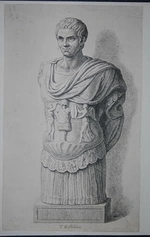
Ancus Marcius, the Fourth King of Rome
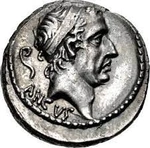
The Roman King Tarquinius Priscus
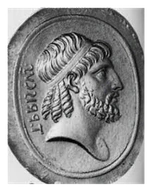
Tarquinius Superbus, the Last King of Rome
